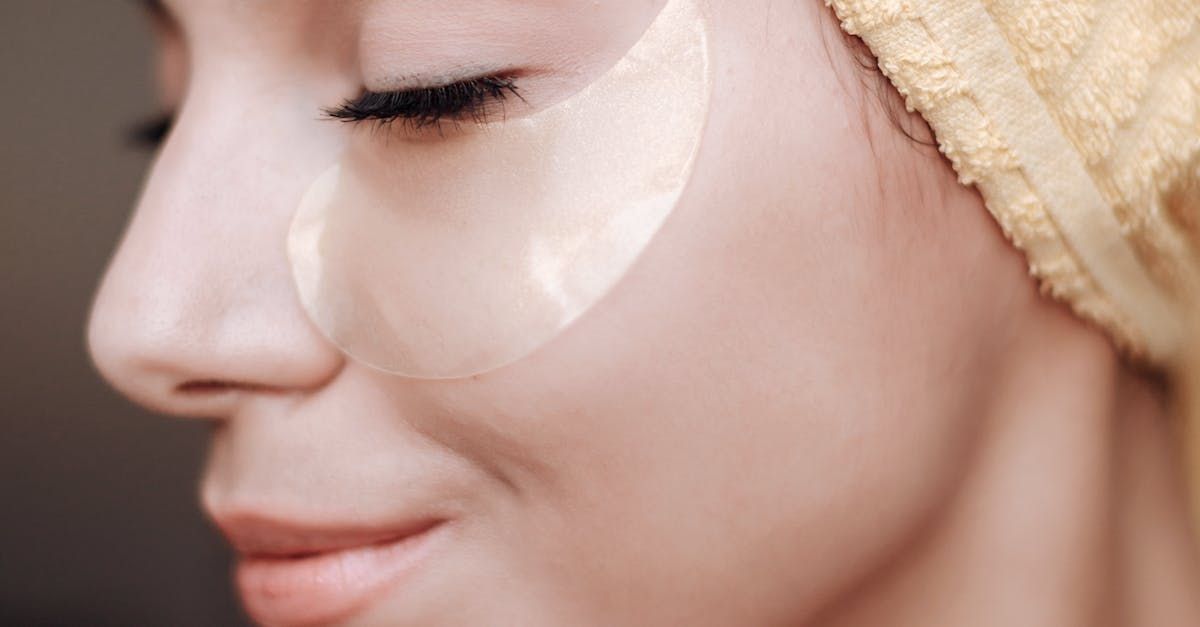The Rowan Tree
Health & Beauty Clinic
- Home
- About
- Blog
- Treatments
- Sentéales Facials
- Sentéales Body Treatments
- CACI Face & Hand Treatments
- SkinBreeze Facials - Microdermabrasion, Oxygen, and LED Light Therapy
- BeautyLab Glycolic & Black Diamond Anti-Ageing Facials
- Microneedling For Face and Body
- Organic & Vegan Aromatherapy Facials
- Holistic Massage Therapies
- Jessica Manicures & GELeration
- Jessica Pedicures & GELeration
- Sterex Electrolysis
- Sterex Advanced Cosmetic Procedures
- Waxing & Eyebrow/Eyelash Tinting
- Sports & Remedial Massage & Acupuncture for Muscular-Skeletal Problems
- Manual Lymphatic Drainage
Blog
The Rowan Tree Blog
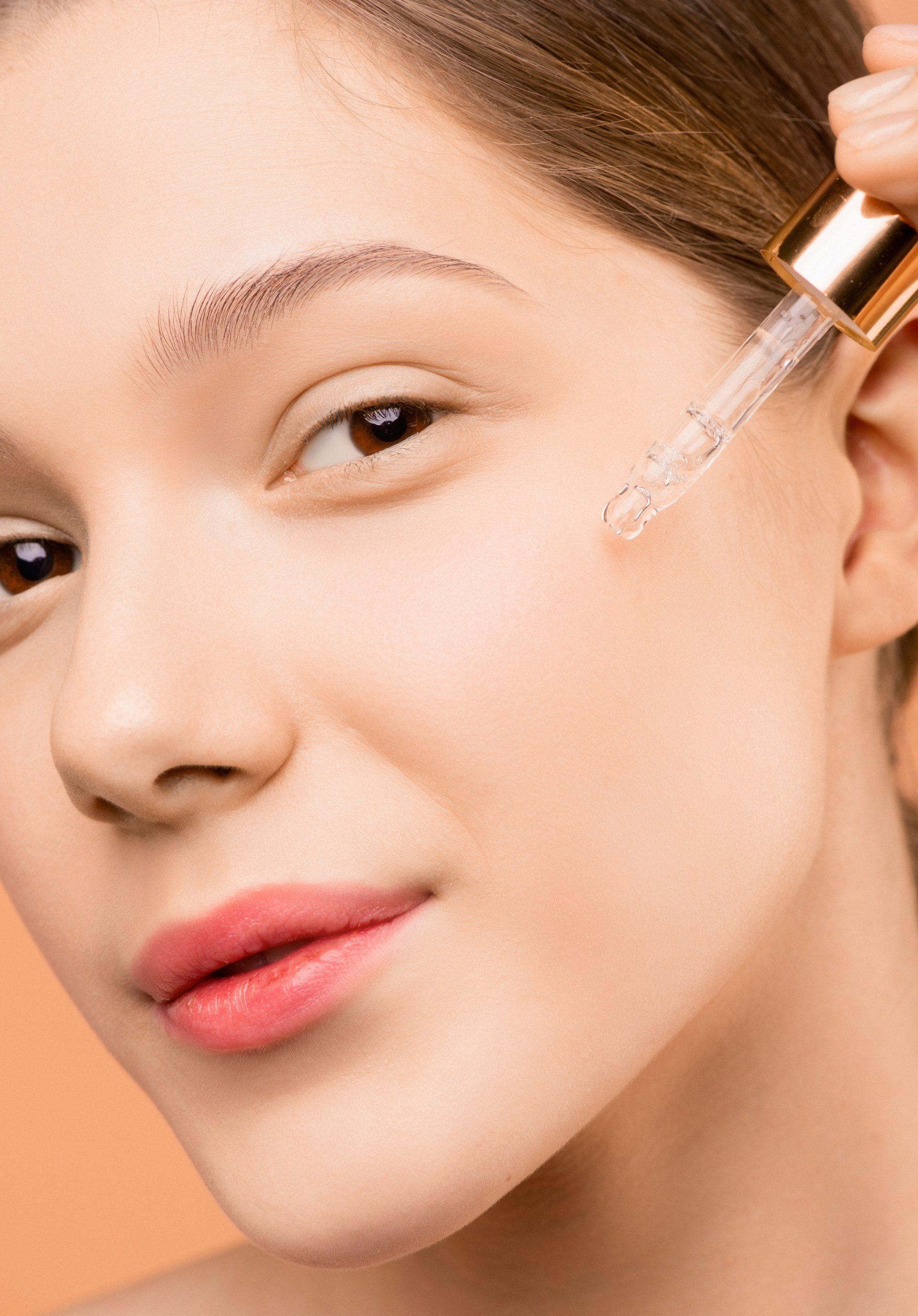
by Martin Duffy
•
19 Apr, 2024
Whilst many clients ask for treatments and products that are ‘anti-ageing’, my primary concern has always been for ‘skin health’. Although all skins inevitably age, a healthy skin will be much slower to show the visible signs of ageing, and will therefore naturally appear more youthful. Ageing of the skin is not solely dependent on ‘age’, which is why some people appear to look young for their age. Skin ageing is caused by two factors, those that are determined by our genetics (known as intrinsic ageing), and those that are determined by external factors (known as extrinsic ageing). Intrinsic ageing is inevitable, and is caused by the natural deterioration of skin function, which leads to diminished collagen production, less-springy elastin, decreased oil production, and slower cell turnover. This degenerative process begins in our mid-20’s, which is the ideal time to start on a preventative skincare regime. However, genetics only account for 15% of the way our skin ages. The other 85% of premature skin ageing is caused by lifestyle and environmental factors, e.g. UV exposure, pollution, alcohol, smoking, stress, and diet (especially high sugar diets, which can cause glycation ). These external factors also have the capacity to speed up the rate of intrinsic ageing. Of these external factors, the primary causes of premature ageing are UV and pollution , which cause skin sagging, thinning, fine lines, wrinkles, rough skin, loss of radiance, and skin discolouration. As the largest causes of premature skin ageing are external factors, it means we can (to some extent) slow the rate at which our skin shows signs of ageing. Some simple steps that can help keep the skin healthy, and slow down signs of premature ageing, include: 🔹Using an SPF and avoiding sun exposure where possible. 🔹Cutting back on sugary foods and drinks. 🔹Ensuring the skin is properly cleansed morning and night to remove pollutants (which cause free-radicals that ‘eat away’ at the skin’s collagen and elastin). 🔹Following a skincare regime that is targeted to your unique needs. For more advice, why not book in for a facial at The Rowan Tree (Arundel, Sussex).
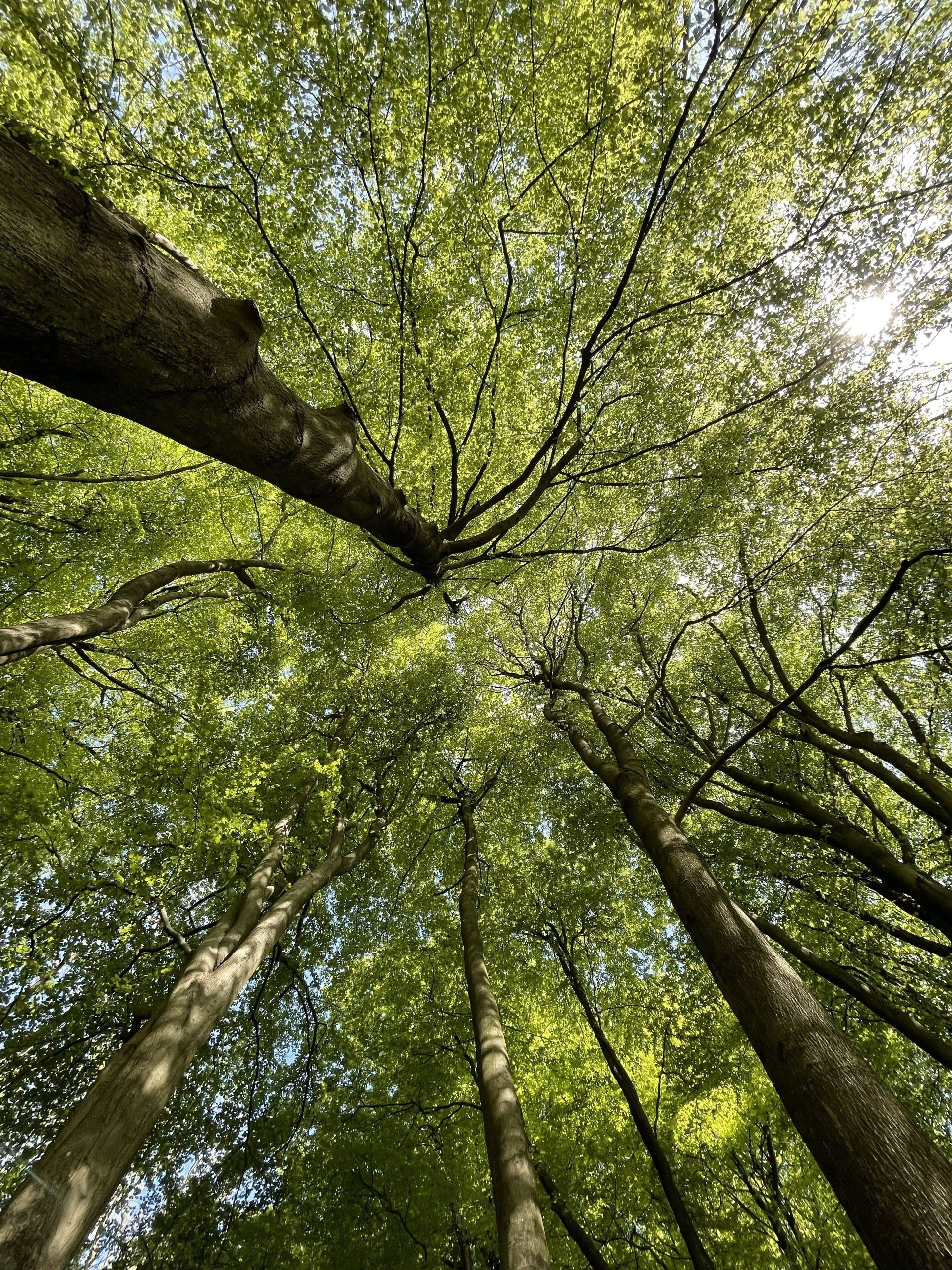
by Martin Duffy
•
15 Apr, 2024
The Power of Beech Bud Extract in Skincare One of the principal botanicals found in Sentéales anti-ageing serum and cream is beech-bud extract (fagus sylvatica). This extract is rich in rejuvenating compounds that are beneficial for the skin. Its main active is hydroxyproline, which amino acid is a major component of collagen. This powerful peptide stimulates the skin to build new collagen and elastin, and helps maintains their stability. Beech bud extract is also rich in vitamins and powerful plant growth hormones. These help stimulate cell turnover for a healthier, brighter, and smoother skin. Beech-bud extract also has a large glutathione content, which is one of the most powerful antioxidants, and helps defend against the free-radicals that cause premature ageing. Glutathione is also produced by the body, but its production decreases as we age. In addition to glutathione, beech bud extract also contains antioxidant flavonoids. The many benefits of beech bud extract include: 🌿 Supports collagen and elastin synthesis to firm and tone the skin, resulting in a more youthful complexion. 🌿 Reduces the depth of lines and wrinkles, and helps prevent their formation. 🌿 Restructures and plumps the skin, helping improve its texture. 🌿 Increases cell turnover for increased radiance and a more even skin tone. 🌿 Increased hydration of the skin. 🌿 Fights premature ageing caused by free-radicals. 🌿 Increased oxygenation of the skin. 🌿 Soothes and calms irritated skins. 🌿 Strengthens the skin barrier.

by Martin Duffy
•
11 Apr, 2024
The Black Orchid The black orchid (cycnoches cooper) was first discovered by the English botanist Robert Allen Rolfe in 1913. This resilient orchid grows in the Peruvian Andes, and can live for over a century. It also has the unusual ability to produce both male and female flowers on the same plant. Black Orchid extract is rich in anthocyanins, a class of flavonoids that have potent anti-oxidant and anti-inflammatory properties, helping to defend the skin against premature ageing. Rich in Vitamin C, this extract also has a powerful brightening effect on the skin, working to revive dull and lifeless skins. Black orchid extract helps draw water into the skin, working to plump, firm, and hydrate the complexion.

by Martin Duffy
•
27 Feb, 2024
Home Skincare Whilst much can be achieved during in-salon treatments, it is equally important to support this with proper home-care. Otherwise, it’s a little like going to the hygienist, but not brushing your teeth in-between! It is important this home-care regimen is optimised for results, and properly chosen and adapted to your individual needs. This is where an in-salon skincare consultation can be extremely useful, as we will be able to examine your skin and determine where your efforts are best directed. A well-designed home-care regimen should help nourish, restore, and rebalance the skin to its natural flora, and ensure the skin is thoroughly hydrated and has a healthy lipid barrier. This not only sets you on the road to healthy and properly-functioning skin, but also gives the skin the resilience it needs for more advanced anti-ageing treatments; compromised skins don’t tolerate intensive treatments very well! A comprehensive home-care regimen also ensures the skin is in the best shape to get maximum and longer-lasting results from your professional in-salon treatments. We recommend consistently following this simple three-step regimen both morning and night, using products suitable for your skin and its needs: Prepare - Cleanse and tone. Treat/Correct - Using a serum or elixir to address the skin’s unique needs. Protect - Hydrating and nourishing moisturiser (and an SPF by day). Twice a week, a suitable exfoliator may be added in to stimulate cell turnover and promote healthy skin. For more advice on the continued care of your skin, why not book in for a facial at the Rowan Tree!
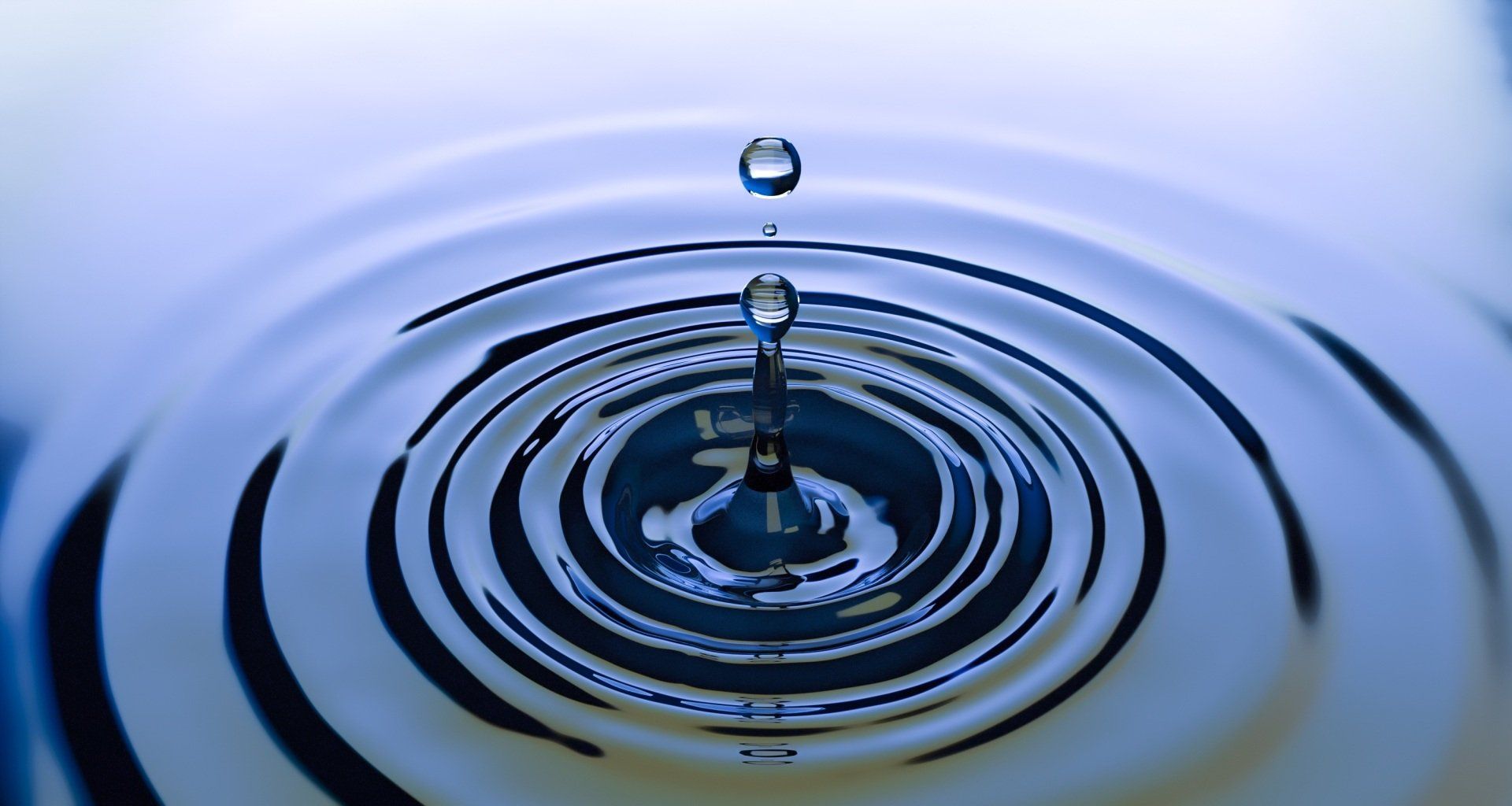
by Martin Duffy
•
25 Feb, 2024
The Importance of Keeping the Skin Cool One of the common skin stressors is heat, whether this comes from washing the face with hot water, taking long hot showers, or sitting in hot centrally heated rooms. The top layer of our skin (the stratum corneum) contains water and oils to help the skin retain moisture. However, heat softens these oils, just as butter melts when it is heated, which results in the natural lipid (oil) barrier melting away. This results in moisture loss and causes the skin to feel tight, dry, and itchy. It also leads to redness, sensitivity, dull and rough skin, and premature ageing. Making the simple change to washing the face with cool water and avoiding sitting too near sources of heat can make all the difference. If your skin is suffering from sensitivity or dryness, it is worth making the swap for products containing skin-calming and moisture-boosting ingredients. Ingredients to look out for are ceramides, fatty acids, aloe vera, niacinamide, chamomile, and liquorice root.

by Martin Duffy
•
25 Feb, 2024
Do I Need A Toner? Whilst ‘cleanse, tone, moisturise’ has long been the mantra for a foundational skincare routine, over the years, toning has fallen out of favour. A lot of this results from the bad-old days of toners, when they were mostly comprised of skin-stripping alcohol. So why should we use a toner? 1. To hydrate the skin - most toners now contain ingredients to quench the skin’s thirst, which hydration is trapped in the skin by our moisturiser. This helps maintain the skin’s barrier, protecting the skin from dehydration and defending against external irritants like bacteria and pollution. 2. To rebalance the skin’s pH - if your cleanser has a high pH, toner will help restore the skin’s natural acidity. Although long-term, you need to make the switch to a pH balanced cleanser, which won’t leave your skin tight and dry! 3. To infuse the skin with active ingredients - many toners now contain active ingredients that help treat the skin. 4. To enhance product-absorption - as moist skin is more permeable than dry skin, using a toner before your serums and moisturisers will enable their active ingredients to penetrate deeper, enhancing their ability to deliver results. 5. To remove any last traces of cleanser - as hard as we might try, sometimes traces of cleanser are left behind. A toner is a quick and gentle way to remove this. Its easy to see why adding a toner into your skincare routine is an easy way to give your skin a boost! Here at The Rowan Tree we recommend the use of Sentéales Refreshing Tonic Lotion to refresh and soothe the skin after cleansing, which contains: 🍃 Green Tea - rich in polyphenols, which have potent antioxidant and skin-soothing properties. 🍃 English Marigold (Calendula) - reduces inflammation, is an effective antiseptic, and a natural antioxidant. 🍃 Magnolia Leaf - helps promote lipid synthesis to restore the skin’s barrier, and works to condition and soothe the skin, and reduce redness. 🍃 Sea Kelp - rich in healing iodine and toning and moisturising minerals. It forms an invisible film on the skin, which helps slow down water loss.

by Martin Duffy
•
25 Feb, 2024
The Secret of Hydrated Skin We all know that hydrated skin is key to a soft and supple complexion, and that dehydrated skins are prone to becoming rough, flakey, irritated, dull, and prematurely aged. However, few realise the principle cause of dehydrated skin is a compromised skin barrier, typically caused by harsh cleansers, over-exfoliation, hot water, environmental factors (such as weather, pollution, etc) - all of which strip the skin’s natural oils. It can also be affected by genetic factors, such as sebaceous gland density and skin-barrier function. If the upper layers of your skin don’t have enough lipids (oils) to form a stable water-proof barrier, water can easily evaporate out of the skin. As dehydrated skin is an external problem, it is most efficiently treated from the outside in the form of a moisturiser, which helps plump up thirsty skin cells and trap moisture in the skin. A common misconception is that drinking lots of water will help rehydrate the upper laters of the skin. However, whilst drinking water is essential for the body to function properly, and has numerous skin benefits (such as helping to flush toxins out of the body), increasing the amount you drink has no direct link to the hydration of the skin’s upper layers. It will hydrate the deeper dermal layer, and help improve skin elasticity, but as this water doesn’t directly pass into the epidermis it cannot correct a parched skin. As the dermatologist Kate Roda MD sagely said, ‘humans aren't like plants. Our skin doesn't perk up when we consume water.’ In short; an application of a topical hydrating lotion will do far more your skin hydration levels than drinking endless bottles of water! Top Tips for a Hydrated Skin: 1. Minimise your exposure to low humidity, strong winds, dry heat, and the sun. 2. Wash the skin with cool or warm water, rather than hot water, which robs the skin of moisture. 3. Opt for a gentle pH balanced cleanser and toner that doesn’t strip the skin’s oils. 4. After cleansing and toning, don’t blot; apply your serums/creams to damp skin, which will lock the water in. 5. To boost hydration levels further, apply a hydrating serum, and lock this in with your moisturiser. 7. Look for moisturisers rich in replenishing oils (such as raspberry seed, jojoba, shea butter, etc), which help the skin form an effective barrier to water loss. 8. Eat plenty of foods rich in essential fatty acids - good sources include walnuts, flaxseed, borage, and olive oil. For more advice on improving the health of your skin, and with it helping to stave off premature ageing, why not book in for a facial with us at The Rowan Tree!

by Martin Duffy
•
25 Feb, 2024
The Importance of Night-Time Skincare Our skin effectively has a day-time and a night-time mode. During the day it is in protection mode, working hard to fight against UV and environmental aggressors (such as pollutants, wind, temperature fluctuations etc). This is why it’s important to use products that are shielding and anti-oxidant during the day. At night, when the skin no longer has to worry about defending itself, it switches to repair mode, and begins to undo the damage of the day by repairing old cells and making new ones. We can help support and enhance this process of cell rejuvenation and restoration by using products that help replenish the skin, undo the day’s free-radical damage, and aid cellular renewal. At night, the skin is more permeable, and better able to absorb topically-applied ingredients, making it the perfect time to use regenerative skincare formulations. This is all the more important, because whilst the skin produces its maximum amount of waterproof sebum during the day, this production drops at night, which leaves the skin prone to water-loss through evaporation. This evaporation of water from the skin is exacerbated by the increase of body temperature at night (as a result of its natural regenerative processes). To remedy, and prevent night-time dehydration, it is important to lock hydration into the skin overnight. Top Tips: Get enough sleep! Without adequate sleep, the skin doesn’t have enough time to complete its regeneration. Cleanse away the accumulated grime of the day to enable the absorption of your products. Apply a skin treatment serum or elixir - choose one that aids skin regeneration, and helps repair and strengthen the skin’s barrier. Lock in the serum or elixir using an occlusive moisturiser (such as one containing shea butter, jojoba, or squalene) or overnight mask. If you struggle with the thought of a night-time routine, move it to the early evening - it doesn’t have to be done immediately before getting into bed!
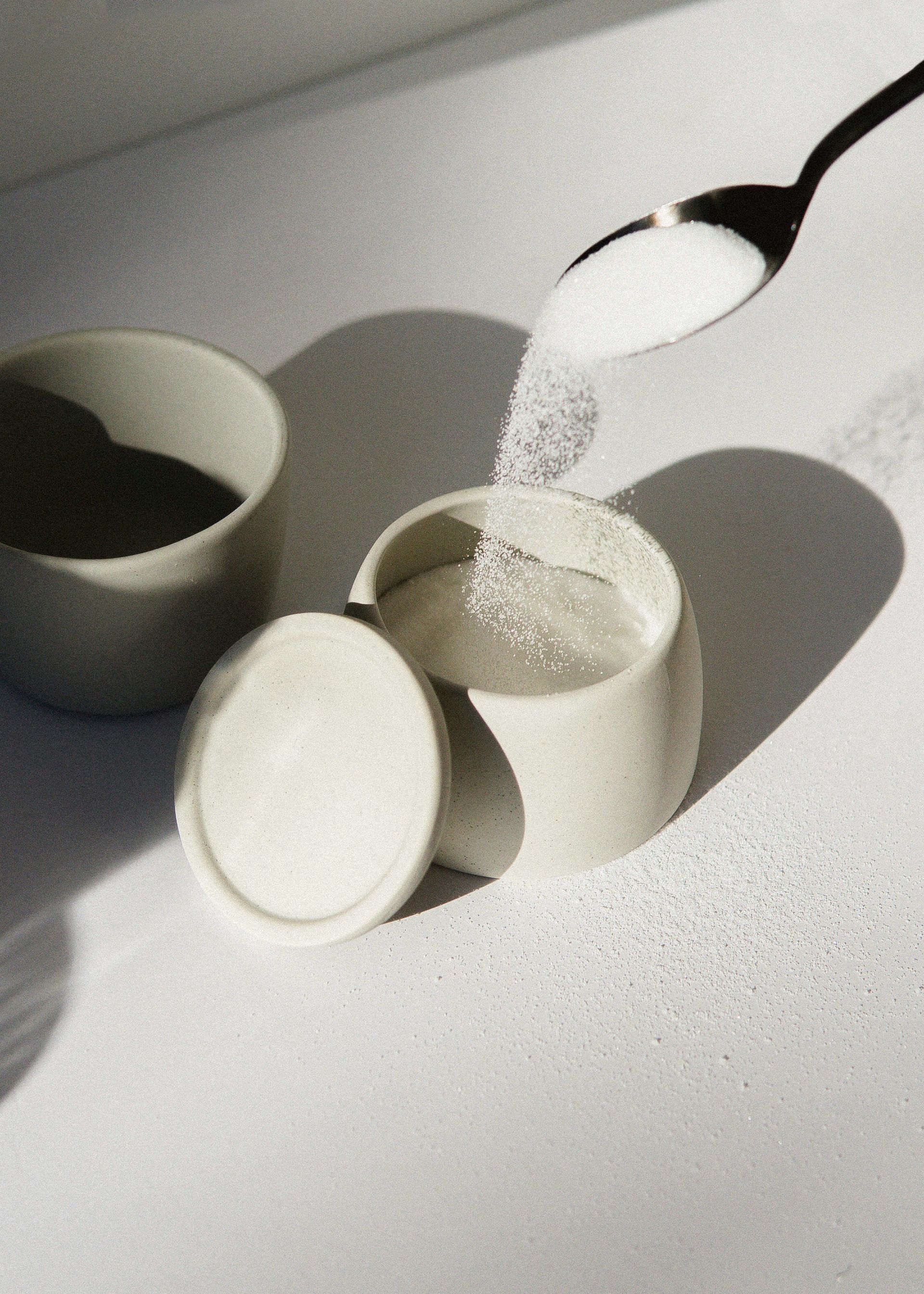
by Martin Duffy
•
22 Feb, 2024
Glycation - Sugar and Skin Ageing We are all used to hearing how sugar damages our teeth, waistline, and health. However, few realise its contribution to premature skin ageing. High-sugar diets lead to excess glucose (sugars) in the body. This glucose binds to our collagen and elastin, creating Advanced Glycation End-products (or AGEs), and causes collagen and elastin fibres to become stiff and brittle. It also degrades collagen from Type III (the strongest form) to Type I, the weakest form. The end result is an increase in fine lines and wrinkles, and lax and sagging skin, especially around the jowl area. Excess glucose in the body can also deactivate our natural anti-oxidant enzymes, leaving the skin vulnerable to free-radical damage, and reduces the skin’s lipid (oil) content. This impairs the skin’s barrier function, and further accelerates premature ageing of the skin. Glycation damage typically appears in our mid-30’s, but with high-sugar diets becoming common at ever younger ages, some are displaying signs of glycation in their 20’s. The most obvious sign of glycation ageing are deep cross-hatch lines appearing around the crows-feet, lip, and chin area. When we think of ‘normal’ wrinkles they run in a linear fashion, and are parallel to one another. However, glycation wrinkles cross over each other and create a pattern similar to the photo below:

